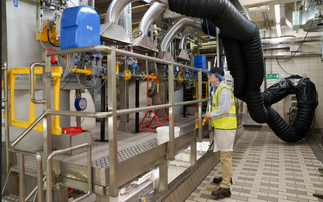EU-backed research project produces first kerosene derived from solar-powered syngas
Plans to start powering aeroplanes on "renewable" kerosene have made a major breakthrough, after researchers in Switzerland produced the first drops of a new fuel that was produced using solar power.
The Solar-Jet project, backed by €2.2m of funding from the European Commission, aims to use concentrated light from the sun to power the production of syngas, which can then be turned into kerosene.
Project partner Shell already converts syngas into kerosene for fuel. However, it is seeking a cleaner source to make the syngas in the first place.
Solar-Jet aims to commercialise a process whereby carbon dioxide and water are converted to syngas in a high temperature solar reactor, potentially creating a "carbon neutral" aviation fuel.
Yesterday, the European Commission revealed that the first "glassful" of solar-powered kerosene had been produced at the laboratory in ETH Zürich, marking a major breakthrough in the four-year research programme.
Máire Geoghegan-Quinn, European Commissioner for Research, Innovation and Science, said the milestone showed the technology could be deployed commercially one day.
"This technology means we might one day produce cleaner and plentiful fuel for planes, cars and other forms of transport," she said. "This could greatly increase energy security and turn one of the main greenhouse gases responsible for global warming into a useful resource."
The project's partners, which include DLR, Bahaus Luftfaht and Arttic, as well as Shell, will now work on the second phase of the programme, which aims to find out if the process could be deployed efficiently on a commercial scale.










